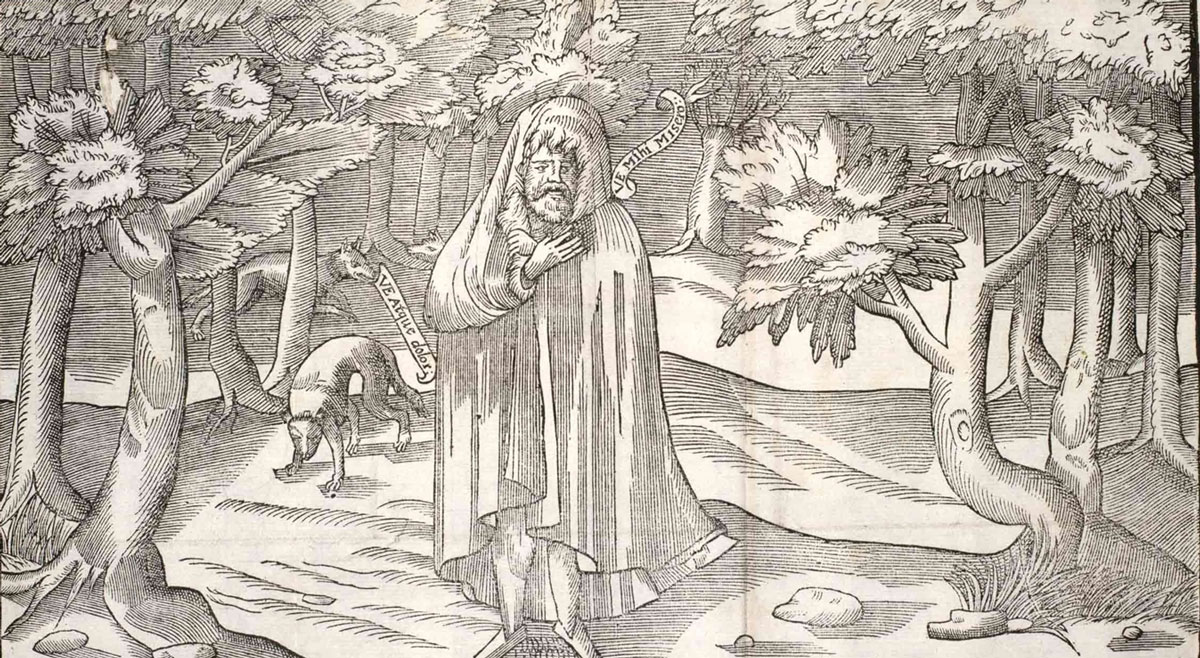
Agents persons, peoples and institutions
Browse and discover
Today’s feast-day (21 December)
A module for identifying agents - encompassing persons, peoples and organisations - and managing information about them has been around for many years, continually evolving as time went by, but what was absent all this time is a public interface for accessing relevant data in a user-friendly way.
This is a first attempt at offering such an interface, which is provided "as-is" and should be considered beta-quality for now (not that there is any official product release cycle as such but using the label is a convenient means to sound the right alarm bells). It currently consists of a basic search, aggregated data overviews for individual agents, and hover-card labels that you will meet elsewhere in the catalogue.
I am aware of duplicates, uneven coverage and other shortcomings that typically arise from the progressive nature of this website or simply, lack of personpower. An earlier version of the interface was available to editors partly because it helps us address some of those issues. None of these objections, however, seemed to weigh heavily against the alternative, which is having nothing at all to offer.
Note that for convenience's sake, many agents are not formally indexed but are nonetheless included by exclusive virtue of being linked. It is a wonderful forte of the system that allows us to retrieve and bring together disparate data from disparate data sources, but some useful metadata will be missing and discoverability is more limited as a result. For instance, we may be linking to a scribe whose name and associated data can be retrieved and presented, but without, say, a floruit it will be difficult to find this person within the appropriate time range. I say "difficult" because it is possible, to an extent, to rely on the dates we have, if any, for associated objects (manuscripts, scribal hands), but such a circuitous approach comes with limitations of its own and is not necessarily methodologically sound.
Meanwhile, I hope that the new interface will improve your experience in using this website. Next up are thematic categories for scribes (in the broadest, non-pejorative sense of the word), authors and scholars.
Last added
- Herbert F. Hore1817–1865Irish historian, archaeologist and author.
- Brian Mac Diarmadafl. 16th centuryChieftain of Magh Luirg (Moylurg, bar. Boyle, Co. Roscommon) between 1568 and 1592.
- Ailerán of Clonardob. 665Irish scholar of the monastery of Clúain Eraird (Clonard, Co. Meath) and author of Latin exegetical treatises.
- Foillán of Fossesfl. 7th century, d. 655Irish saint associated with Fosses (Fosses-la-Ville), in Wallonia, and brother of Fursa and Ultán.
- Aidan D. S. MacDonald1941–2013
- Louise H. van Wijngaarden-BakkerDutch archaeologist and archaeozoologist.
- Willy Groenman-van WaateringeDutch archaeologist.
- Finghin Ó Scannaillfl. 19th centuryIrish scribe who worked for James Hardiman.
- Hans Sloane1660–1753Sir Hans Sloane, Anglo-Irish physician and collector.
- Gruffudd Hiraethogd. 1564Welsh poet.
- Benignus Millett1922–2006Irish Franciscan priest and historian.
- Alexander Irvine [1773-1824]1773–1824Scottish clergyman, minister of Little Dunkeld (1806-1824), and a collector who took a great interest in Gaelic poetry.
- Iain Lomc.1624–c.1710Scottish Gaelic poet of the Macdonalds of Keppoch.
- Sìleas na Ceapaichc.1660–c.1729Scottish Gaelic poet, commonly known as Sìleas na Ceapaich (of Keppoch). She came from a noble family, and was the daughter if Gilleasbuig (Archibald), chief of the Macdonalds.
- John Lowe [bishop]d. 1467English clergyman. He was bishop of St Asaph (1433-1444) before being translated to the bishopric of Rochester.
- Brecon priory
Benedictine priory, daughter-house of Battle Abbey.
- Ordnance Survey of Ireland
- Amiens, Bibliothèque municipale
- Tréguier cathedral
- Saint-Brieuc cathedral
- Rennes cathedral
- Vannes cathedral
- Mont-Saint-Michel abbey
- Quimperlé, abbey of Sainte-Croix
- Quimper cathedral
- Cwrt Mawr
Building and estate near Llangeitho, Ceredigion.
- Liath Mór [Leamakevoge]
- Vienna, Archiv des Schottenstifts
- Cell Moinne [Kilmoon, Co. Meath]A foundation in the modern parish which is named after it, that of Kilmoon/Kilmoone (bar. Skreen, Co. Meath).
- Liverpool, University Library
The special collections are in the Sydney Jones Library.
Randomised results
A random selecton of authors and those so described.



